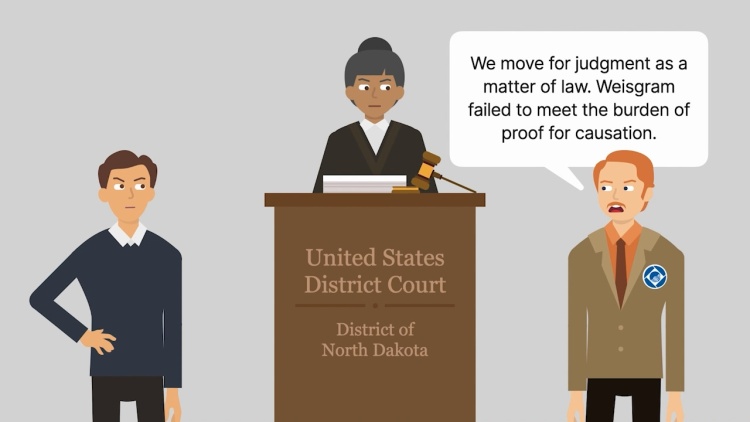Weisgram v. Marley Co.
United States Supreme Court
528 U.S. 440, 120 S.Ct. 1011, 145 L.Ed.2d 958 (2000)
- Written by Alexis Tsotakos, JD
Facts
On December 30, 1993, Bonnie Weisgram’s home caught fire. When firefighters arrived at the scene, they found Bonnie dead from carbon monoxide poisoning. Her son, Chad Weisgram (plaintiff), brought a products liability suit against the manufacturer of the heated baseboards in Bonnie’s house, Marley Co. (defendant), alleging that a defect in the electric baseboards caused the fire that killed Bonnie. At trial, Weisgram presented evidence from three experts, who testified that the heater contained a defect that caused the heater to overheat and catch fire. Marley objected to this testimony, arguing that it was unreliable and therefore inadmissible under F.R.E. 702 and the standard set forth by the Court in Daubert v. Merrell Dow Pharmaceuticals, 509 U.S. 579 (1993). The trial court overruled the objection and denied both of Marley’s motions for a judgment as a matter of law under F.R.C.P. 50. The jury returned a verdict in favor of Weisgram, and Marley appealed. The court of appeals reversed, finding that Weisgram’s experts’ testimony was inadmissible because it was speculative and not scientifically sound, and without that testimony Weisgram had not presented enough evidence to sustain the jury verdict. Weisgram appealed, and the United States Supreme Court granted certiorari.
Rule of Law
Issue
Holding and Reasoning (Ginsburg, J.)
What to do next…
Here's why 907,000 law students have relied on our case briefs:
- Written by law professors and practitioners, not other law students. 47,100 briefs, keyed to 996 casebooks. Top-notch customer support.
- The right amount of information, includes the facts, issues, rule of law, holding and reasoning, and any concurrences and dissents.
- Access in your classes, works on your mobile and tablet. Massive library of related video lessons and high quality multiple-choice questions.
- Easy to use, uniform format for every case brief. Written in plain English, not in legalese. Our briefs summarize and simplify; they don’t just repeat the court’s language.





